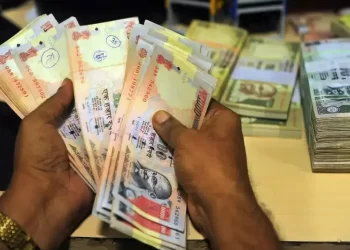JAKARTA: Malaysian palm oil futures closed with their best week in five, even as prices fell on Friday as traders chose to book profits ahead of a long weekend.
The benchmark palm oil contract for September delivery on the Bursa Malaysia Derivatives Exchange was down 27 ringgit, or 0.66%, to 4,040 ringgit ($858.30) a metric ton on the closing.
The contract gained 3.17% this week, its second consecutive weekly gain.
The futures were seen easing on profit-taking after the recent strong recovery and ahead of the long holiday weekend, said Anilkumar Bagani, research head of Mumbai-based vegetable oil broker Sunvin Group.
Malaysia’s financial markets will be closed on Monday, July 8, for a public holiday. Trading will resume on Tuesday.
Dalian’s most-active soyoil contract dropped 0.97%, while its palm oil contract lost 1%. The Chicago Board of Trade was closed for a holiday.
Palm oil ends lower; export and production data in focus
Palm oil is affected by price movements in related oils as they compete for a share in the global vegetable oils market.
Palm oil inventories in Malaysia, the world’s second-biggest producer, rose for a third consecutive month in June as exports slowed, while output fell from the previous month, a Reuters survey showed.
Malaysia’s palm oil stocks were seen at 1.83 million tons, up 4.53% from May-end, according to the median estimate of 12 traders, planters and analysts polled by Reuters.
The Malaysian Palm Oil Board is scheduled to release its June data on Wednesday, July 10.
Oil prices were little changed on Friday, trading near their highest since late April and on track for a fourth straight week of gains, driven by hopes of strong summer fuel demand and some supply concerns.
Higher crude oil futures make palm a more attractive option for biodiesel feedstock.
JAKARTA: Malaysian palm oil futures closed with their best week in five, even as prices fell on Friday as traders chose to book profits ahead of a long weekend.
The benchmark palm oil contract for September delivery on the Bursa Malaysia Derivatives Exchange was down 27 ringgit, or 0.66%, to 4,040 ringgit ($858.30) a metric ton on the closing.
The contract gained 3.17% this week, its second consecutive weekly gain.
The futures were seen easing on profit-taking after the recent strong recovery and ahead of the long holiday weekend, said Anilkumar Bagani, research head of Mumbai-based vegetable oil broker Sunvin Group.
Malaysia’s financial markets will be closed on Monday, July 8, for a public holiday. Trading will resume on Tuesday.
Dalian’s most-active soyoil contract dropped 0.97%, while its palm oil contract lost 1%. The Chicago Board of Trade was closed for a holiday.
Palm oil ends lower; export and production data in focus
Palm oil is affected by price movements in related oils as they compete for a share in the global vegetable oils market.
Palm oil inventories in Malaysia, the world’s second-biggest producer, rose for a third consecutive month in June as exports slowed, while output fell from the previous month, a Reuters survey showed.
Malaysia’s palm oil stocks were seen at 1.83 million tons, up 4.53% from May-end, according to the median estimate of 12 traders, planters and analysts polled by Reuters.
The Malaysian Palm Oil Board is scheduled to release its June data on Wednesday, July 10.
Oil prices were little changed on Friday, trading near their highest since late April and on track for a fourth straight week of gains, driven by hopes of strong summer fuel demand and some supply concerns.
Higher crude oil futures make palm a more attractive option for biodiesel feedstock.









